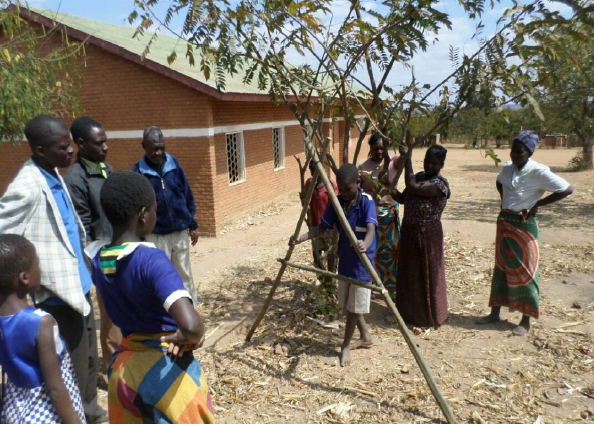AFSA is organizing 4 sessions in which organizations who are part of AFSA members will share how their work with farmers to advance agroecology practice/natural farming is going. 27 January, 10 February, 24 February, 10 March.
- See previous blogpost: 24/01 AFSA: advancing agroecology practice/natural farming
- Related: Agroecology in the 2021-2027 Multi-annual Financial Framework of the EC/INTPA
10/02 Looking at the 9 principles of Natural Farming as developed by the Community Natural Farming programme in Andhra Pradesh from their experience, which are the two principles you would say you and the farmers you are working with are most effectively putting into practice?
Presentations from:
RUCID - Mityana in Uganda
Rural Community in Development (RUCID) started in 1994 as an NGO; working with rural farmers helping them realize that farming is a profit making occupation. Rucid was started with a demo farm of 1.8 acres trying out information gathered from research stations on the farm and so helping the farmers to apply the knowledge.
RUCID has trained over 250,000 farmers so that they can use organic farming methods to grow their crops, look after their animal and support natural environment so that it can support their present activities for the better future.
Presentation by:
- Samuel Nyanzi
- Ssebadduka Elisha Bireke
Samuel Nyanzi is "a living encyclopedia" of indigenous knowledge and he experiments his knowledge and innovations at his site at the Rural Community in Development (RUCID) in Mityana, Central Uganda.
The Organic Agriculture Centre of Kenya (OACK)
OACK from Muranga’a county in Central Kenya saw that by providing
the right skills, information and support, they could help small-scale
farmers move away from subsistence farming and into thriving
livelihoods that improve their local communities and the landscapes
they live in.
OACK is keen to raise awareness of the negative
impact of industrial agriculture on Kenya’s farmland
and the roles that farmers and consumers play in
restoring its sustainability.
Samuel proves that smallholder farmers hold both
great potential and a strong desire to move from
subsistence farming to prosperous livelihoods
that support the local agriculture and economy.
Combining indigenous knowledge with the right
training, farmers and their families can contribute
and thrive on the landscapes they entirely depend
upon.
Presentation by:
- Everlyne
- Lawrence
Malawi chapter of regional Scope
 SCOPE Malawi is an Organisation that uses permaculture as a tool to assist schools to redesign their grounds in an ecologically sound manner with impressive results. SCOPE Malawi promotes the sharing of experiences by partners who are committed to assisting schools and colleges to demonstrate sustainable land use with a view of enhancing healthy environments in and out of schools and communities.
SCOPE Malawi is an Organisation that uses permaculture as a tool to assist schools to redesign their grounds in an ecologically sound manner with impressive results. SCOPE Malawi promotes the sharing of experiences by partners who are committed to assisting schools and colleges to demonstrate sustainable land use with a view of enhancing healthy environments in and out of schools and communities.Presentation by: Jazzakah Mapasa, Technical Advisor SCOPE Malawi




No comments:
Post a Comment